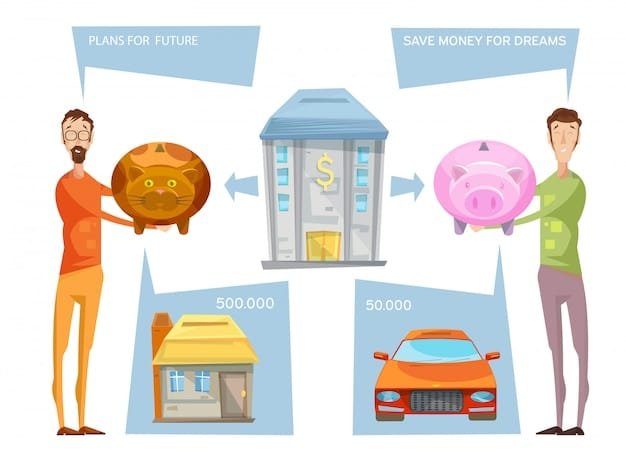Financial Planning for the Gig Economy: A 2025 Guide

Financial planning for the gig economy in 2025 demands adaptable strategies to navigate income volatility, encompassing budgeting, tax management, retirement savings, and healthcare planning for independent workers.
The rise of the gig economy has empowered many with flexibility and autonomy, but it also presents unique financial challenges. This article explores financial planning for the gig economy in 2025, offering strategies to master income volatility and secure your financial future.
Understanding the Gig Economy Landscape in 2025
The gig economy continues to evolve, with more individuals embracing freelance, contract, and temporary work. To effectively navigate this landscape, it’s essential to understand its defining characteristics and how they impact financial planning.
Let’s dive into the key aspects that shape the gig economy in 2025.
The Rise of Remote Work
Remote work has become increasingly prevalent, allowing gig workers to access opportunities globally. This shift necessitates careful consideration of international regulations and tax implications.
Technological Advancements
Platforms and tools are constantly evolving, offering new ways for gig workers to find opportunities and manage their finances. Staying updated with these advancements is crucial.
- Freelance Platforms: Leverage platforms like Upwork, Fiverr, and Toptal to find gigs and manage projects.
- Financial Management Tools: Utilize apps like Mint, Personal Capital, and Quickbooks Self-Employed to track income, expenses, and taxes.
- Online Education Resources: Invest in online courses and webinars to enhance skills and stay competitive.
Understanding these aspects will allow you to prepare your finances accordingly.
Budgeting for Irregular Income
One of the biggest hurdles in the gig economy is dealing with fluctuating income. Creating a robust budget that accounts for these variations is essential for financial stability.
Here’s how to budget effectively when your income isn’t always consistent.

Calculate Average Monthly Income
Track your income over several months to determine your average monthly earnings. This provides a baseline for budgeting.
Prioritize Essential Expenses
List all your essential expenses, such as rent, utilities, and groceries. Ensure these are covered even in months with lower income.
- Emergency Fund: Aim to save at least three to six months’ worth of essential expenses in an emergency fund.
- Expense Tracking: Use budgeting apps or spreadsheets to monitor your spending and identify areas to cut back.
- Automated Savings: Set up automatic transfers to your savings account to ensure consistent contributions.
Managing irregular income is key to a successful career in the gig economy.
Tax Planning for Gig Workers
Navigating taxes as a gig worker can be complex. Understanding your obligations and taking advantage of available deductions can significantly reduce your tax burden.
Plan ahead to avoid unexpected tax bills.
Understanding Self-Employment Taxes
Gig workers are typically classified as self-employed, meaning they are responsible for paying both the employer and employee portions of Social Security and Medicare taxes.
Tracking Deductible Expenses
Keep detailed records of all business-related expenses, such as home office costs, equipment, and travel. These can be deducted to lower your taxable income.
Tax planning is another important step to becoming a successful gig worker.
Retirement Savings Strategies
Planning for retirement is critical, even with an irregular income stream. Several retirement savings options are available to gig workers, each with its own benefits and limitations.
Ensure your financial future is secure with these tactics.

SEP IRA
A SEP IRA allows you to contribute up to 20% of your net self-employment income, with contributions being tax-deductible.
SIMPLE IRA
A SIMPLE IRA is another option, offering potentially higher contribution limits compared to a traditional IRA.
- Solo 401(k): Provides the flexibility to contribute both as an employee and as an employer, allowing for substantial savings.
- Roth IRA: Contributions are made with after-tax dollars, but earnings and withdrawals in retirement are tax-free.
- Consult a Financial Advisor: Seek professional advice to determine the best retirement savings strategy for your unique circumstances.
With any of these options, a comfortable retirement may be within your grasp.
Healthcare Planning for Independent Contractors
Securing affordable healthcare is a significant concern for gig workers. Explore available options to ensure you have adequate coverage without breaking the bank.
There are a number of healthcare options for the modern gig worker.
Health Insurance Marketplace
The Affordable Care Act (ACA) marketplace offers a variety of health insurance plans, with subsidies available based on income.
Membership Associations
Some professional and industry associations offer group health insurance plans to their members, often at discounted rates.
Consider exploring these options to ensure you have adequate health coverage.
Managing Debt Wisely
Effective debt management is crucial for financial stability in the gig economy. Develop strategies to minimize debt and avoid unnecessary interest charges.
Minimize your debt for maximal benefit.
Prioritize High-Interest Debt
Focus on paying down debts with the highest interest rates first, such as credit card balances. This can save you a significant amount of money over time.
Consolidate Debt
Consider consolidating your debts into a single loan with a lower interest rate. This can simplify repayment and reduce overall costs.
- Emergency Fund: Having an emergency fund can help you avoid taking on new debt in unexpected situations.
- Credit Counseling: Seek guidance from a credit counselor to develop a personalized debt management plan.
- Negotiate with Creditors: Contact your creditors to negotiate lower interest rates or payment plans.
By effectively managing debt, you can reduce your financial stress and boost your economic benefit.
| Key Area | Brief Description |
|---|---|
| 💰 Budgeting | Create a budget that accounts for income fluctuations. |
| 🧾 Taxes | Track deductible expenses and pay estimated taxes quarterly. |
| 🏦 Retirement | Save for retirement using SEP IRAs, SIMPLE IRAs, or Solo 401(k)s. |
| ⚕️ Healthcare | Explore health insurance options through the ACA marketplace or membership associations. |
Frequently Asked Questions
▼
▼
▼
▼
▼
Conclusion
Mastering financial planning for the gig economy in 2025 requires a proactive and adaptive approach. By implementing these strategies, gig workers can navigate income volatility, secure their financial future, and thrive in the evolving world of work.





